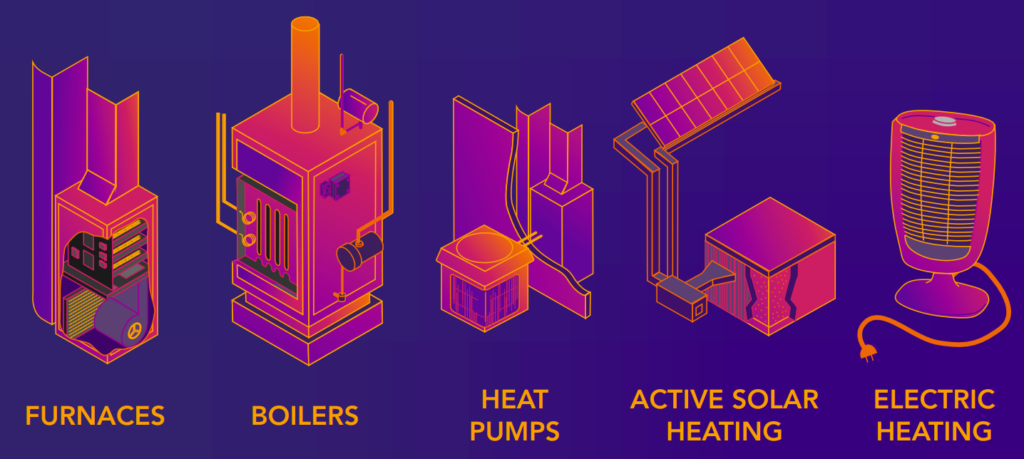
A perfect heating system installation in your home helps you maintain the right temperature by extracting heat from the outside atmosphere and bringing it into your living space for the winter. However, it is imperative that the heat pump is well suited to your environment for it to work properly.
Residential Heating Installation Guide
Finding an ideal heat pump is a challenge. A few general guidelines will help you choose the right heat pump to efficiently heat and cool your home. For best results, it is essential to seek professional assistance with heating installation in Queens.
Size of Heating System Matters:
Sometimes the size of your heat pump does not seem necessary. A little too small or too big doesn’t hurt either. This is far from the truth. Choosing the right size heat pump is crucial. An incorrectly sized or oversized heat pump can waste energy. A heat pump that is too small or too large for your home will probably not work properly. Your energy bill can go up if your heat pump struggles to heat and cool your home. A heat pump that works harder to reach the right temperature will also cost you more in repair and maintenance.
Alternatively, if your heat pump is too large, it will waste energy and reduce efficiency.
Which type of heat pump is right for me? In terms of heat transfer, heat pumps differ in the way they extract heat from the environment.
There are four types of heat pumps:
- Air-to-water heat pumps extract energy from ambient air and use it to heat water. Heat is transferred through the water. Split (split) and packaged heat pumps fall into these categories. Its universality makes it a precious natural element.
- Ground-to-water heat pumps extracts heat from the ground or from a geothermal well.
- Water-to-water heat pumps take heat from two sources.
- Air-to-air heat pumps are ideal for hot air heating systems that use air as a working medium and distribute air through ducts to all buildings in the building. These systems use a heat pump for cooling (air conditioning).
Implementations of land/water and water/water types are insufficient due to scarcity of space and water resources.
Consequently, the air/water heat pump offers the most economical and economical solution, both from the point of view of installation and service.
Heat Loss in the House:
Home heat loss is a good thing to consider when choosing a system. Please make sure that the power of the heat pump is not overstated or underestimated before buying it. Oversizing can lead to increased wear of components when the appliance does not need to heat the house.
Furthermore, if the device were the correct size, it would not be necessary to supply heat at the required rate. Professional residential heating installation can significantly reduce heat loss in a home.
Other Parameters:
When looking for a heat pump, it is important to consider two factors. The COP and EER of a heat pump indicate its heating and cooling efficiency. SCOP and SEER essentially provide the same values, but over a longer period of time. Under standard conditions, SCOP calculates the average warming of the season.

Simone Arnica is the certified and more than 35 years experienced HVAC expert from Arnica Heating and Air Conditioning Inc. suggesting maintenance tips for the HVAC system to protect it from early damage, unwanted maintenance cost and also to save on energy cost. Follow the blog to learn how it can be done easily.




Leave a Reply
You must be logged in to post a comment.